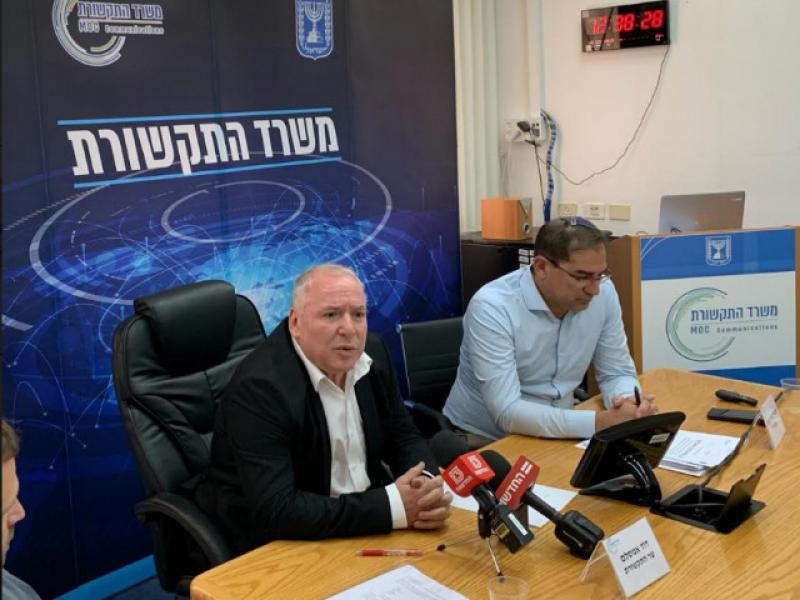
The Ministry of Communications published the tender for frequencies for the fifth generation cellular. This is an innovative technology that will enable the transfer of information at high speeds relative to the current situation. The tender winners will be announced during the fourth quarter of the year and the frequencies will be allocated to the companies.
The auction will be conducted using the auction method in sealed envelopes. The highest bidder is the winner of the tender, but is expected to pay the second highest price. The state uses this method to get the maximum value and at the same time avoid inflating prices. The Ministry of Communications will try to allocate the most requested frequencies, which are frequencies 700 MHz, to all cellular companies.
The state will provide significant incentives to operators. This is a NIS 500 million return that will encourage operators to act quickly. The current government can not advance the decision, since it is a transitional government, but the Finance Ministry agreed in principle not to raise the annual fees paid by cellular companies.
All the cellular operators are paying about NIS 300 million a year, and this figure is not expected to change in the next four years. The cellular operators are expected to pay a lump sum in the framework of the tender, but some will be refunded to them, based on meeting the targets.
The tender participants will pay the license fee only in January 2022. This postponement will allow them to allocate the money in the first two years in favor of investment in technology. Later in the country, the cellular operators will be able to enter into another tender, in which they will provide wireless internet to homes.
The tender will be conducted by a method called "combinatorial clock auctions". This method allows competitors to compete in all areas of frequency. The frequencies in the tender will only be offered to companies that agree to establish a joint network. The goal is to prevent inefficient allocation of frequencies.
The system of incentives for deployment consists of two tracks. Reduction in frequency charges - an annual reduction of 28% of all frequency fees for a period of four years. Operators will be required to meet engineering goals each year. The benefit will be given at the beginning of each year, assuming that the operator has met the targets.
In the second track, the state will provide an incentive of up to NIS 200 million. The cellular companies will have to build 250 fifth-generation broadcasting centers. Those who built the largest number of sites will receive up to 82 million shekels, which is about 41% of the amount. The second place will receive NIS 66 million and the third place will receive NIS 52 million.
The Ministry of Communications estimates that the public will begin to enjoy the new technology by 2020. Communications Minister Dudi Amsalem said today, "This is a technological process that will sign its mark for decades ahead. Our lives - smart homes, smart cities, smart medicine, bringing the periphery closer to the center, education, autonomous vehicles, advanced industry and more.
Articles Archive
Top Categories
ABOUT IFI TODAY

Lorem ipsum dolor sit amet, consectetur adipisicing elit, sed do eiusmod tempor incididunt ut labore et dolore magna aliqua. Ut enim ad minim veniam, quis nostrud exercitation ullamco laboris nisi ut aliquip ex ea commodo consequat. Duis aute irure dolor in reprehenderit in voluptate velit esse cillum


Comments